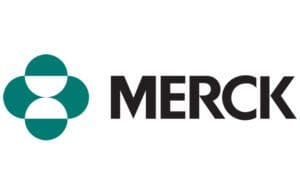 In 2023, Merck & Co. made a considerable investment in research and development, spending more than $30 billion. This figure represents more than double the company’s R&D spending ($13.5 billion) in 2022.
In 2023, Merck & Co. made a considerable investment in research and development, spending more than $30 billion. This figure represents more than double the company’s R&D spending ($13.5 billion) in 2022.
The closest competitor in terms of R&D investment was Roche Pharmaceuticals, with a 2023 R&D expenditure of roughly $14.7 billion. This sum is less than half of Merck’s spending. Next in line was Novartis, which spent approximately $13.7 billion on R&D. Next in line was Johnson & Johnson Innovative Medicine, which spent about $12 billion.
In 2023, Merck’s revenue narrowly eclipsed that of Pfizer, which fell 41.7% from 2022 levels owing largely to collapsing demand for COVID-19 products.
In 2023, Merck invested roughly half of its revenue in R&D.
The chief drivers of Merck’s R&D spending included the following:
Prometheus and other strategic acquisitions and collaborations
-
- Prometheus Biosciences: The $10.2 billion acquisition expanded Merck’s precision medicine focus, especially for immune-mediated diseases like ulcerative colitis and Crohn’s disease. Prometheus’ lead candidate, tulisokibart, is already in phase 3 clinical trials.
- Imago BioSciences: This $1.2 billion addition brought expertise in bone marrow diseases to Merck’s portfolio. Imago’s lead candidate, Bomedemstat, is also in phase 3 trials, highlighting Merck’s focus on late-stage assets.
-
Daiichi Sankyo Collaboration: Merck partnered with Daiichi Sankyo in a $5.5 billion deal centered on cutting-edge antibody-drug conjugates (ADCs) for cancer treatment. This collaboration, featuring a $4 billion upfront payment and potential milestones, strengthens Merck’s oncology offerings.
-
Sharper development focus: Merck’s internal development spending also surged, channeling resources towards oncology, cardiovascular diseases, infectious diseases, and vaccines.
To state the obvious, acquiring another company is fundamentally different than investing in internal R&D. While Big Pharma firms increasingly rely on M&A to acquire new drugs, not all report them under R&D in annual reports. For instance, Pfizer spent $43 billion to acquire SeaGen, a deal that closed in late 2023, but Pfizer cited its R&D spending for the year as $10.7 billion. Speaking of Pfizer, its pandemic-era partnership with BioNTech for the COVID-19 vaccine, as well as acquisitions like Myovant Sciences, highlight its focus on bolstering its pipeline without always categorizing these activities as direct R&D costs. Others, like Incyte, have dedicated a substantial portion of R&D budgets to partnerships in recent years.
Merck’s R&D strategy in focus
Merck’s 2023 investments reflect a strategic approach with three key pillars:
- Immuno-oncology: Building on its blockbuster Keytruda therapy, Merck continues to develop ways to harness the immune system in the fight against cancer.
- Precision Molecular Targeting: Merck seeks drugs that target specific molecules involved in diseases. Lynparza, a PARP inhibitor, is a prime example, with more precision therapies in the pipeline.
- Tissue Targeting: Merck aims to deliver drugs directly to affected areas. Its collaboration with Kelun-Biotech on TROP2-directed ADCs showcases this targeted approach.
Internal pipeline overview
Merck’s internal pipeline features over 80 programs in phase 2, with more than 30 in phase 3 and over 10 under regulatory review. Notable candidates include MK-1022 (patritumab deruxtecan) for non-small-cell lung cancer, MK-7962 (sotatercept) for pulmonary arterial hypertension, and V116, a 21-valent pneumococcal conjugate vaccine – all currently under priority FDA review. Despite the setback with MK-7264 (gefapixant) for chronic cough, which received a Complete Response Letter, Keytruda remains a strong driver within Merck’s portfolio. The company continues to explore Keytruda’s potential across more than 30 cancer types. Merck’s collaborations with Daiichi Sankyo, Kelun-Biotech, AstraZeneca, Eisai, and Moderna underscore its commitment to strategic partnerships. Beyond oncology, Merck maintains active programs in vaccines (V116, V940), infectious diseases (islatravir for HIV), and cardiovascular disease (sotatercept), MK-0616 for cholesterol).
Analysis
No matter how you break the figures down, Merck’s considerable R&D investments signal the increasingly expensive nature of drug development in a fiercely competitive pharmaceutical landscape where Big Pharma firms often spend tens of billions of dollars each year to drive incremental growth. With acquisition costs also in a similar range, a question emerges: Given that smaller biotechs have struggled to navigate the current climate while M&A activity favoring later-stage assets has remained strong, how will Big Pharma firms of the future navigate a landscape with a smaller pipeline of acquisition targets? The dynamic could lead to a landscape where partnerships extend beyond traditional acquisition models, with joint ventures and shared-risk projects potentially reshaping the dynamics of drug development and market entry strategies in years to come.
Filed Under: Drug Discovery, Oncology



